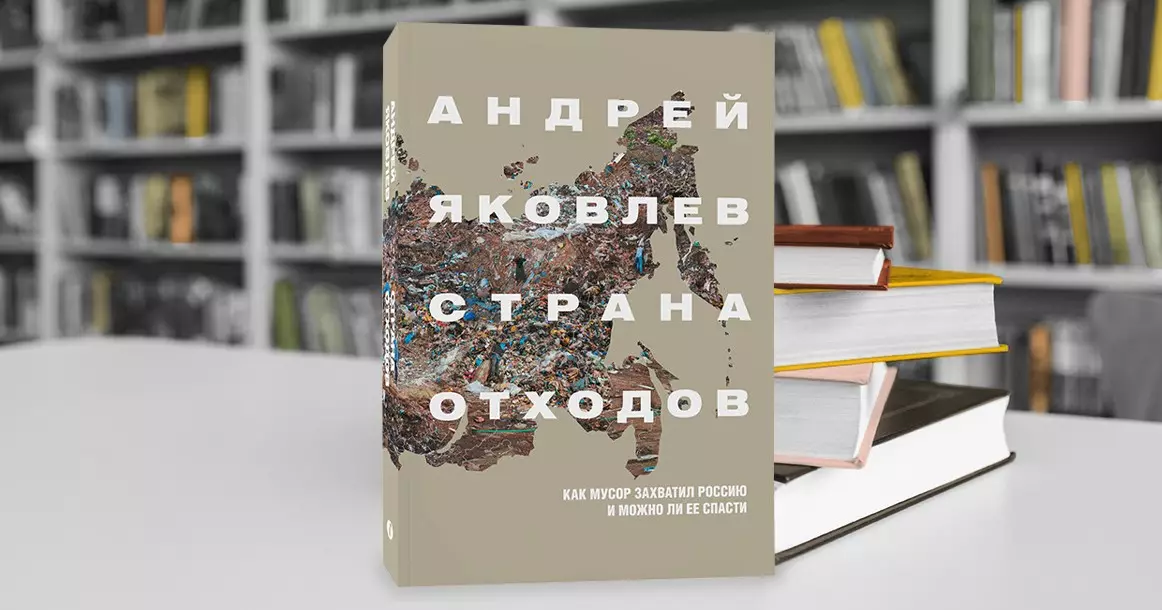
For several years of life in Germany, I managed to make sure that the local environmental policy, which on the part sometimes seems hardly exemplary, is actually far from ideal.
The state can call for resource savings, but any communication with bureaucratic structures, as a rule, does not occur by e-mail, but through the most common, with stamps and envelopes. Therefore, you have to constantly print documents, spending paper and, which is much more unpleasant from the point of view of responsible environmental behavior, cartridges.
You can find other examples of some, how to say softer, impotability. But I firmly know that in Germany carefully sort the garbage, and the feasibility of this sorting is also ecological, and economic. The color of the garbage tank in my yard says what happens to the garbage further: paper and cardboard from blue tanks will be reworked into new paper, the same thing will happen with plastic sent to the yellow tank - from it pipes or packaging. Food waste that is sent to the brown tank will be a compost for agriculture and biogas, transport fuel. Burn only garbage from the black tank - and this is an important source of energy on the scale of the German economy.
It is clear that multicolored tanks require several garbage buckets in the house and extreme care when sorting. But it is quickly getting used to, at the same time learning uncomplicated rules: cash checks are made of thermal paper, which is not processed in the same way as usual - they will go to the black tank. There is also a place for broken glasses. They cannot be thrown into bottles in containers - different glass melts at different temperatures.
In short, the whole system of separate garbage collection assumes that most household waste will be recycled. Of course, a lot of garbage remains, and this is a serious problem for the whole world. With the fact that the garbage needs not only effectively process, but also to minimize its number, today there are very many, and not only environmental activists of varying degrees of radicality.
Moscow journalist Andrei Yakovlev put the experiment - he tried to reduce the amount of garbage in his own household. This experience described in the Book of Country of Waste. As the garbage captured Russia and whether it can be saved "(Individuum), demanded from Yakovleva a cardinal reorganization of his whole life: to buy and, therefore, consume goods only in the processed packaging, to dispose of bioews, almost stop there is outside the house. But the author of the "Waste Country", to his chagrin, lasted less than a month: "Three weeks later, my experiment finally failed. I hoped that at the end of the month I would only have a small box of waste - with such a speakers on the TED Eco -activist Lauren Singer. In the jar fit all her garbage for three years. I did not succeed. Moscow because of its huge distances and so eats a huge amount of time. The road from home to work and back takes me almost three hours a day. Total per month on the road, I have more than three days. And I don't want to add a trip for objects without plastic here. "
But before putting an experiment on himself and his girlfriend (judging by the book, she was not delighted with this venture), Yakovlev carefully studied the state of garbage processing in Russia. It is the knowledge of the situation, which gave the name of the book, and not at all the desire to be given by the Eccentric, led him to the need to try to embody him in practice, which he shares. Yakovlev writes: "It is known that today in Russia to 94% of the garbage goes to the landfill and only 4% is recycled and 2% is burned. In the European Union, 45% of the garbage goes on the recycling on average, and it goes about as much as in the oven: 27-28%. " And each year the territory of landfills in Russia increases by 400 thousand hectares - this is the square together of Moscow and St. Petersburg.
Yakovlev describes in detail, in what condition Russia joined the "garbage reform" (officially - the national project "Ecology", or the reform of the system of solid communal waste management system), which began in 2019, and what happens today. This is an excellent journalistic work: conversations with ecologists and officials, rides for landfills and dating with those who live on landmarks, a lot of statistics, analysis of foreign public and private practices and a story about the emergence of a new type of anxiety - chronic fear of environmental disasters, fear, Capably lead to depression. Yakovlev visited the garbage poligons, he tells how they look like - and what they should be. The book ends with instructions for Muscovites "How to start sorting garbage without any problems."
The chief, the most sad paradox that appears after reading the "Waste Country" is an insurmountable gap between what each individual citizen can do, and what does (or what does not do) state. Activists were able to defend Schez, but thousands of such sesions in Russia. The establishment of regional waste management operators began throughout the country, but they often became the company related to the authorities and won non-competitive trading. These companies concluded contracts at high prices, and therefore tariffs for garbage collection will be high for citizens. Even in Moscow at all not just dispose of garbage separately.
Experts, quotes of which Yakovlev leads at the end of the book, for the most part pessimistic: in the near future in the sphere of garbage processing in Russia nothing will change.
